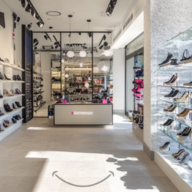Back to the Woods - II

Retail
386 week ago — 9 min read
A recent global study by WWF found that retailers with responsible sourcing policies reported tangible business benefits on numerous fronts. The survey covered a wide range of markets, including North America, Western Europe and emerging markets in Asia and Africa. A total of 54 responses from 21 sectors and 20 countries were collected.
WWF’s recent global study has found that, for retailers, the business case for sustainability generally links to value drivers in three domains: mitigating risks, growing the business, and improving productivity. Within each domain, there are numerous metrics that in theory can affect a business’ return over the medium to long term.
In the global industry survey conducted with 54 retailers, growth metrics, such as revenue and sales, market share and customer satisfaction was found as the second strongest driver (after risk management) of the business case for responsible sourcing.
For growth in a retail business, there are numerous factors involved like access to new markets and geographies, new customers and market share, market defence, product and service innovation, long-term strategy and operational and regulatory risk management. Typically, quantifying the effects of responsible sourcing on these factors is difficult. Nevertheless, this research found that responsible sourcing had a positive impact on critical metrics of growth like customer loyalty, presumably through better management of brand and reputation. It had limited impact though on other growth metrics such as market share and sales.
Customer relations
All companies stated that being able to demonstrate their commitment to sustainability and social values through responsible sourcing helped gain and maintain customers’ trust. Relatively few retailers identified customer demand as a motivation for pursuing responsible sourcing, but those that implemented responsible sourcing unanimously reported positive impacts on customer relations. In one example, a company’s internal market research revealed that its sourcing practices came up as the second most important issue identified by customers worldwide. Implementing responsible sourcing commitments and demonstrating progress toward them helps the retailer meet this consumer demand. This authenticity is believed to contribute to customer loyalty – even though metrics to measure customer loyalty are often absent.
While most retailers surveyed by WWF did not see the increased customer trust manifested in increased overall sales or market share, several large-scale global consumer surveys have found that trust is among the most influential factors in a consumer’s purchasing decisions. Consumers tend to exhibit more loyalty to trusted brands and, everything else being equal, high levels of customer loyalty – measured by customer satisfaction – have been linked to moderate improvement in financial performance. This is critical to address from a retailer’s point of view because responsible sourcing, when integrated into business practices, can enable retailers to better manage brand value and reputation by avoiding negative publicity and maintaining brand integrity.
Early adopters of responsible sourcing have evolved to taking preemptive measures against potential risks and mitigate environmental and social impacts before they become public relations crises. Some companies have been using forest certification as a platform for stakeholder engagement, where they can engage in constructive multi - stakeholder dialogues and cooperation to resolve contentious issues. If a company claims to be socially and environmentally responsible and yet does not follow through with its commitments, it is likely going to lose credibility and customer trust in light of increasing public scrutiny of private sector commitments.
Several retailers testified in this regard. In Switzerland’s largest supermarket chain Migros’s day-to-day operations, sustainability is considered key to customer loyalty and trust. Customers expect responsible products, without necessarily expecting to pay a premium for them. This is closely tied to the company’s corporate identity and value as a cooperative retail business. While Migros does not have quantified data on the reputational benefits of FSC (Forest Stewardship Council), its market research shows that trust in the brand is one of the strongest reasons why Migros customers come back.
Customers do specifically request responsibly sourced goods, although this is usually in relation to food products. The FSC certification gives customers the option to choose forest products like paper and wood that have been sourced in an environmentally-friendly, socially responsible and economically viable manner. It is a guarantee that ensures responsible sourcing of forest products and helps maintain the Migros brand integrity and customer trust.
Greentailing
Market share & sales
A 2015 global survey found that sales of consumer goods from brands with a demonstrated commitment to sustainability grew more than 4 per cent globally, while those without grew less than 1 per cent. This divide was found to be even sharper for paper towels and bath tissue categories. This study found that responsible sourcing by itself is not directly associated with a change in a retailer’s market share or sales revenue; instead, it serves as a ‘market defence’ strategy against competitors in places where consumers’ expectations on business ethics are high.
In such markets, where the concept of sustainability has become mainstream, sourcing sustainable forest products is now expected practice. As a result, responsible sourcing practices and related marketing do not necessarily help retailers capture new markets, as lack of overall transparency means consumers cannot properly differentiate between market players, and this may not be their main shopping concern, even in more sensitive markets
However, the companies surveyed did note that in the early days, when there were few certified products in the marketplace, there was a certain advantage to being seen as a market leader. A key takeaway, therefore, is that in markets like India, where sustainably sourced, certified products have not yet become mainstream, there can be a clear case for retailers to adopt responsible sourcing practices and gain this first-mover advantage.
Although responsible sourcing itself has no direct impact on sales, this research and others have found that sales of certified products are increasing. In one survey of US home improvement retailers, 62 per cent of the 132 respondents identified increased sales of certified forest products over the past five years, with 26 per cent reporting a significant increase.
For example, Migros, which offers the largest range of FSC certified products in Switzerland, saw sales of FSC products growing by 12.5 per cent in the past year. In total, the company’s sustainable product sales increased by a third between 2012 and 2015. This increase in sales is largely driven by higher share of certified products in companies’ product offerings, but evidence also points to increased customer preference for environmentally responsible products.
Similarly, Bunnings which is Australia’s largest household and hardware chain, found that FSC has strengthened its relationships with stakeholders such as Greenpeace and WWF. This has helped improve the company’s trust and credibility, and created a platform for discussion with external stakeholders.
Making a case for India
Through such case studies, Indian retailers can witness the lessons learnt and business gains made by their counterparts operating in more mature markets in the field of sustainability and sourcing. Retailers worldwide recognise that adopting an effective sustainability strategy equips a business with the ability to successfully manage evolving customer asks and retain market share, while also securing its long-term raw material supply in the process.
As a retailer dependent on forest-based products, concrete action towards time-bound commitments around responsible sourcing can thus have positive impacts on the long-term growth of one’s business. Such action will also bring with it wider, universal benefits of preventing forest degradation and conserving biodiversity.
To explore business opportunities, link with us by clicking on the 'Invite' button on our eBiz Card.
Article contributed by WWF India for STOrai Magazine
Disclaimer: The views and opinions expressed in this article are those of the author and do not necessarily reflect the views, official policy or position of GlobalLinker.
Network with SMEs mentioned in this article
View STOrai 's profile
SME Inspirations
Other articles written by STOrai Magazine
Enhanced Brand Storytelling in the Digital Age
40 week ago
Most read this week
Trending

















Comments (1)
Share this content
Please login or Register to join the discussion